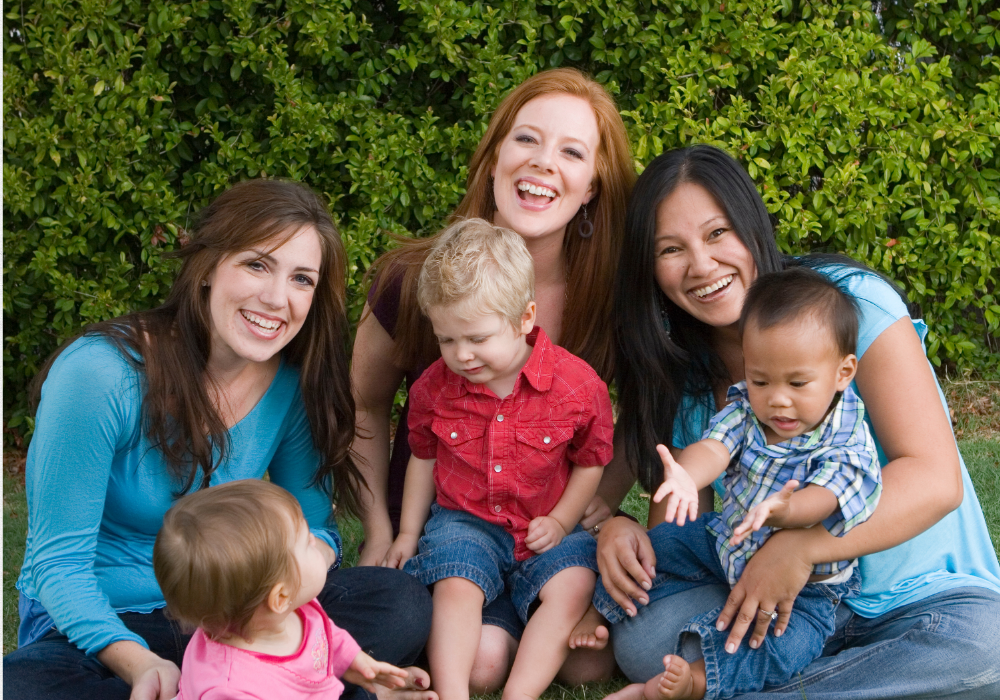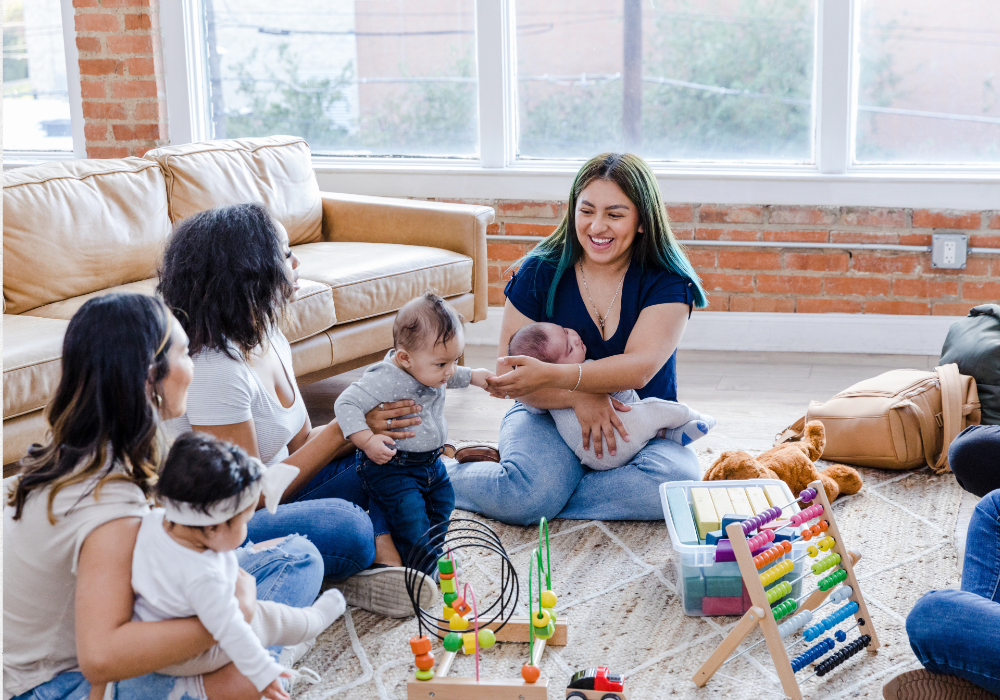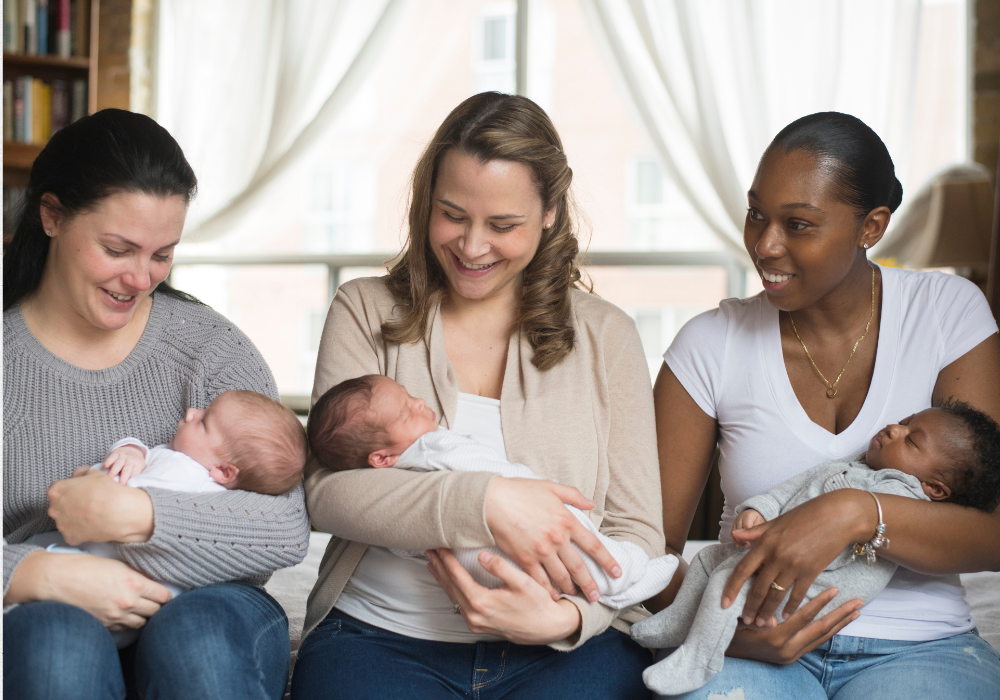You don’t have to pretend everything’s fine to find real community.

Nobody tells you how lonely parenting can feel—not in the big, dramatic moments, but in the quiet, endless ones. You’re surrounded by needs, noise, and routines, yet somehow more disconnected than ever. The social circles shrink. The conversations get shallow. And it starts to feel like everyone else has some magical village you missed out on.
You start wondering if maybe you’re the problem. Like maybe if you just tried harder, joined more groups, made more small talk, smiled more—maybe it wouldn’t feel so hard. But that’s not it. The real problem is that so much of modern parenting culture expects you to be both exhausted and endlessly pleasant. It rewards performance, not honesty.
This isn’t about finding the perfect crew or becoming a social butterfly overnight. It’s about making small, honest moves that invite real connection. The kind that doesn’t require a filter or a fake laugh. Just a little effort, a little vulnerability, and the reminder that you were never meant to do this alone.
1. Say what you’re actually feeling, not what sounds good.

Linda and Charlie Bloom write in Psychology Today that emotional honesty deepens connection and creates space for more meaningful relationships. When someone asks how you’re doing, skip the automatic “good” or “tired but hanging in there.”
Say you feel overwhelmed. Say you yelled this morning and feel guilty. Say you don’t know what you’re doing. It’s vulnerable—but it’s also magnetic. That kind of truth-telling gives people permission to meet you where you are. The right people won’t flinch.
In fact, they’ll probably exhale and tell you their version of the same thing. It’s not about trauma-dumping or making every conversation deep. It’s about leaving the performance behind. The less you fake it, the easier it is to find others who aren’t faking it either.
2. Drop into a group once—even if you don’t go back.

Not every parenting group will be your thing, and that’s fine. Beth Arky at the Child Mind Institute explains that even attending one support group can offer relief and connection for parents who feel isolated. Try the library storytime. Check out a parent meetup at the park. Drop by a postpartum support group. Worst case? It’s awkward for an hour and you never return. Best case? You meet one person who gets it.
It’s easy to overthink or wait until you feel “up for it.” But those small, low-stakes visits are where some of the best connections quietly begin. You don’t have to be outgoing. You don’t have to commit. Just being there is enough. Sometimes you only need to show your face once to open a door that stays open later.
3. Find one person to text the messy stuff to.

You don’t need a big group chat or a ride-or-die best friend to feel connected. You need one person you can text without editing. Someone you can send a photo of your destroyed living room or vent about naptime hell without worrying how it lands.
If you don’t have that person yet, think about who’s already a little bit honest with you. Reach out first. Send a small, real check-in instead of the usual emoji reply. Brad Brenner of The Therapy Group of DC explains that small gestures, known as “bids for connection,” can strengthen emotional bonds and create a deeper sense of closeness in relationships. When things feel chaotic or isolating, being able to say “today sucked” and get a simple “same” back can be everything.
4. Say no to the playdates that drain you.

Some gatherings feel good. Others feel like work in disguise. If a playdate leaves you more depleted than you were before, you’re allowed to skip it. You’re not failing your kid or being antisocial—you’re protecting your energy, which is part of protecting your sanity.
You don’t owe anyone a reason or an apology. If you need to bow out, do it. And if you’re dreading every social event, it might be time to reassess which ones actually serve you. Not every opportunity is worth saying yes to. The more honest you are about what feels nourishing and what feels fake, the easier it gets to make space for what you actually need.
5. Get curious about the other parents standing on the sidelines.

At the park, at drop-off, outside the pediatrician’s office—other parents are everywhere, also pretending to be on their phones. You don’t have to make small talk, but a casual comment, a real compliment, or even just eye contact can crack the shell.
You never know who’s craving connection too. Sometimes you meet a stranger and never speak again. Other times, you meet someone who turns into your person. You don’t have to force it. Just notice who’s there, and don’t assume everyone else already has it all figured out. Most people are just waiting for someone to go first.
6. Create a low-pressure hangout you’d actually want to attend.

If everything on the calendar feels exhausting, it might be time to make something smaller. Invite one or two people to a bring-your-own-snacks park day. Host a short afternoon coffee drop-in while the kids watch a movie. Skip the clean house and curated snacks—just make it easy.
People are far more likely to show up when things feel casual and real. It’s not about being the host with the most. It’s about creating space that’s safe to show up tired, messy, and honest. The simpler it is, the more doable it becomes. And once you make the first move, you’ll probably find others grateful for the invitation.
7. Talk to the person who looks just as over it as you.

Every playgroup, school event, or chaotic party has one other parent who looks exactly how you feel—tired, overwhelmed, slightly detached. Instead of scanning the room for the most put-together person, look for the one who seems a little checked out. They’re probably not faking it either.
You don’t have to jump into deep talk right away. A shared sigh, a comment about how loud it is, or a raised eyebrow over snack chaos is enough to start something real. Sometimes, the most genuine conversations happen when neither of you is trying too hard. Let the kids be wild. Let the snacks be stale. And let your guard down just enough to see if someone else is quietly doing the same.
8. Join spaces that aren’t just for parents.

It’s easy to fall into the trap of thinking your whole life has to revolve around parenting now—but connection doesn’t only come from other people with kids. Sometimes the best way to feel human again is to join a space where that part of you isn’t front and center. A local writing group, a book club, a climate meet-up, a neighborhood mutual aid effort—somewhere you can show up as a person, not just a caregiver.
You don’t have to talk about your kids. You don’t have to explain why you’re tired. Just be there, contribute what you can, and let yourself exist outside the parenting box. These spaces often lead to friendships that feel easier, more genuine, and surprisingly grounding. Sometimes finding your people means stepping outside the circles you think you’re “supposed” to be in.
9. Be the first one to say, “Want to swap numbers?”

Yes, it’s awkward. Yes, it can feel a little like dating. But if you meet a parent you click with—at the park, in a class, wherever—just go for it. Don’t wait for some perfect opening or a second meeting. Say, “Hey, you seem cool. Want to swap numbers in case we’re ever here again?”
It doesn’t guarantee a new best friend. But it opens the door. And in parenting life, where everyone’s rushing off or wrangling a meltdown, it’s easy for good moments to end without any way to follow up. Think of it as planting a seed. Even if nothing comes from it right away, you’ve started something. You were brave enough to go first—and sometimes, that’s all it takes to make a real connection stick.
10. Keep showing up even if it feels awkward at first.

That first drop-in group? The awkward playdate? The local meet-up you almost bailed on? Show up anyway. Not every interaction will click, but consistency builds comfort. You might not find your people the first time—or even the fifth—but the more familiar you become in a space, the easier it is to relax into it.
You don’t have to talk much or stay long. Sometimes just being a face people start to recognize is enough to break the ice over time. It’s tempting to give up after a few “meh” attempts, but connection often builds in slow, invisible ways. Keep showing up in ways that feel manageable. That’s how roots start to form.
11. Share something real online—and see who responds.

Parenting online can feel like a highlight reel, but sometimes dropping one honest post changes everything. You don’t have to get deeply personal—just share something small and real. A moment that made you cry, laugh, lose your mind. The people who engage with that are your clue.
You might find an old friend who’s in the same stage. You might start a DM thread that turns into a support system. Or you might just realize you’re not the only one feeling how you feel. Social media isn’t a replacement for in-person connection, but it can be a surprisingly good spark—especially when you use it to be real instead of perform.
12. Let go of finding “your people” and look for a person.

The idea of finding a whole crew—a village, a group chat, a chosen family—is beautiful but not always realistic. Sometimes what you need is just one solid person. Someone who texts back. Someone who gets it enough. Someone who shows up when they can and doesn’t make you explain the hard stuff.
Take the pressure off finding a whole community and focus on finding someone you feel okay around. You can build something real from there. And honestly? One person who’s in it with you is worth more than a dozen acquaintances who smile on cue and ghost when it matters. Real connection starts small, and that’s more than enough.